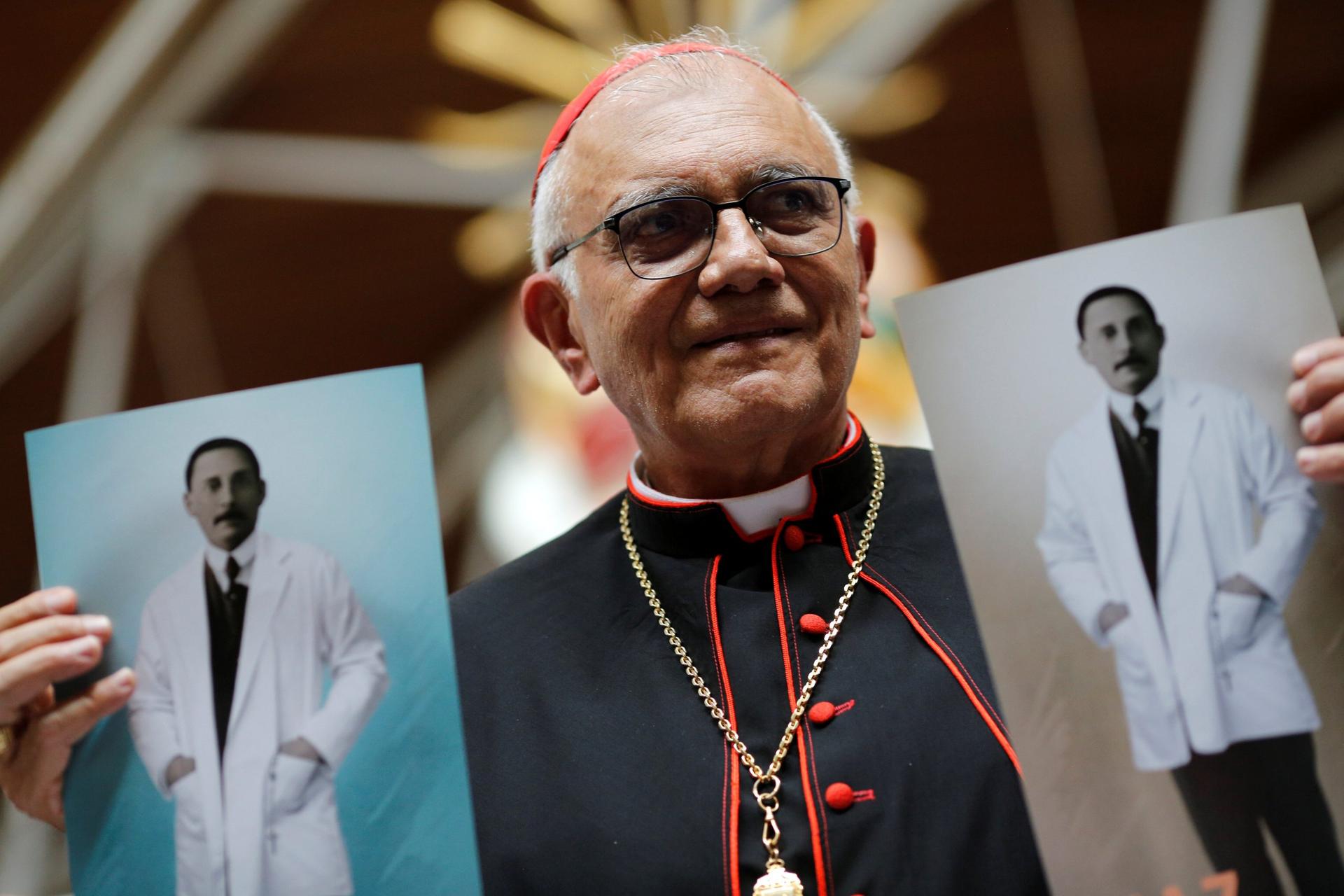ROME – Venezuelan Cardinal Baltazar Enrique Porras says Pope Francis has the South American country in his heart. After meeting with him on Friday, he said the pontiff had urged the country’s Church to continue to look for a “peaceful, negotiated solution, without giving up our principles.”
Such a solution would help avoid “the violence, war or repression” often used around the world particularly in situations “of existing inequalities.”
During an interview with Crux on Friday, hours after meeting Francis, the cardinal avoided using any harsh terms when describing his country, simply noting that it’s “in crisis.”
This has long been the Vatican’s diplomatic line, even when most of those working in the pope’s foreign office acknowledge President Nicolas Maduro is seen as a dictator and a person about whom “nothing good can be said,” as a high-ranking diplomat told Crux last week.
What follows are excerpts of Porras’s conversation with Crux. It has been edited for clarity and length.
What brought you to Rome this week?
We have come with the commission of economic affairs of the Archdiocese of Caracas to thank the Holy Father for the beatification of Dr. José Gregorio Hernández.
This lay doctor has been like rain in May in the midst of the situation that the country is going through — and not only for Venezuela — but the presence of a doctor, layman, researcher, professor, believer, man of dialogue with all the different sectors … what it means.
He lived in a positivist world, which did not prevent him from expressing his faith, but not in a polemical way. He was very friendly and had a very good relationship with those who thought differently from him. And in the current situation, this is very important.
He was also an open believer. He is a testimony, a model, so necessary in today’s world. That is why the Pope has named him co-patron of peace at John Lateran. I have been discovering many different facets of a multifaceted life, of a man who on the one hand was normal, he liked music and dancing. He was close to the people, he was a very demanding but much-loved professor, who motivated the modernization of medicine in Venezuela.
Without having had any publicity campaign, his testimony spread like wildfire throughout Latin America. I am struck by the requests for relics from all over the world, the bishops’ conferences from Canada to Argentina, but also from Australia and practically from all the bishops’ conferences of Europe.
And in Venezuela it has been a very interesting moment, in the moment we are living, for an evangelizing campaign, moved mainly by the participation of the laity, and also in particular of the people in the healthcare sector.
Besides the pope, did you have meetings with other members of the Roman Curia?
Yes, with Cardinal Pietro Parolin, who having been the Pope’s ambassador in Venezuela has his heart there, and the substitute [Archbishop Edgar Peña Parra], who is from Venezuela. We also went of course to the Congregation of the Saints, and seeing that we are working on a more transparent economy not only of the Archdiocese of Caracas but of the whole Church in Venezuela, we also visited the IOR [the Vatican Bank], to see the work they are doing, and it has been really very fruitful.
What would Dr. Gregorio say today about the situation in Venezuela?
He would be a man who, in the first place, would always be very attentive to the poor. Secondly, an aspect that was highlighted 100 years ago – in the midst of a dictatorship – without having a policy of confrontation, he did have a policy of denunciation, of how the state was not complying with the health of all the people of Venezuela.
I believe that if he were alive today, he would be a very respected man, but always focused on dialogue, without being a man of confrontation or polemic. It should be noted that, despite his deep respect for others, he was very clear about his own values.
Can you imagine a future in which the millions of Venezuelans who left their country in recent years – close to 6 million, according to the United Nations Migrants and Refugees office – return, as Dr. Hernandez did after his training as a physician?
It is one of the most significant examples we have, because we know, and statistics prove it, that when these exoduses take place, forced or not, the percentage of those who return is small compared to those who leave: 10 to 15 percent. Many professionals have left the country, and they know that, because of the natural resources and geographical issues, Venezuela has a lot of potential.
One of the things we have presented to the Holy Father and in which he encouraged us, is the launching of a massive vaccination campaign with the name of Don Gregorio Hernandez, so that it does not have any political, partisan or proselytizing connotation, but that it really serves life, as Pope Francis asks us to do.
Can you share with us some of what Pope Francis told you about Venezuela?
He feels very close to us. He is following the situation very closely, and asking what he can do. And he invites us to look for a peaceful, negotiated solution, without giving up our principles, but looking for what unites us so that it is not to lead to violence, war or repression, something that we see in the whole world in situations of existing inequalities; and the need to represent the post-pandemic world.
We cannot go back. As Pope Francis says, we are going to come out better or worse, and it is in our hands to make it better, and that better world is through respect for life, the search for a greater sense of equality, democracy, and respect for one another.
Follow Inés San Martín on Twitter: @inesanma














